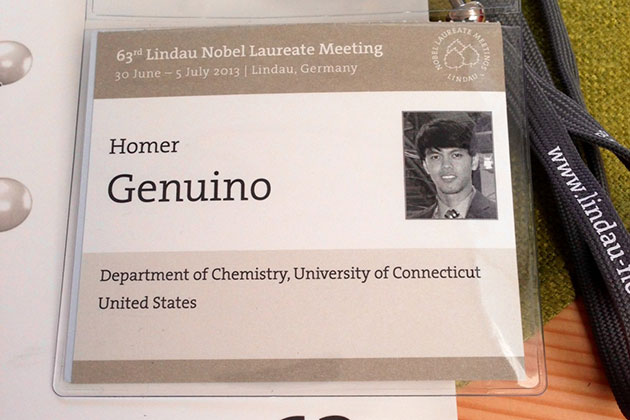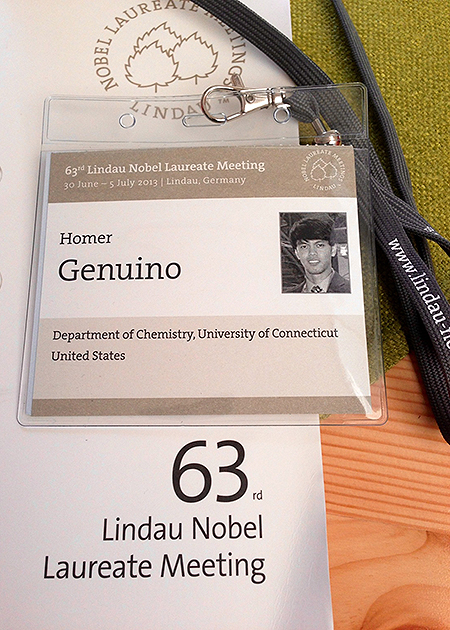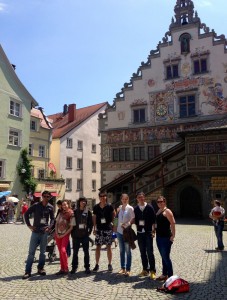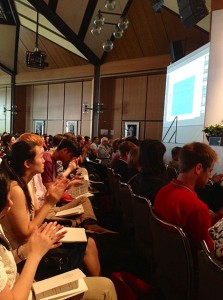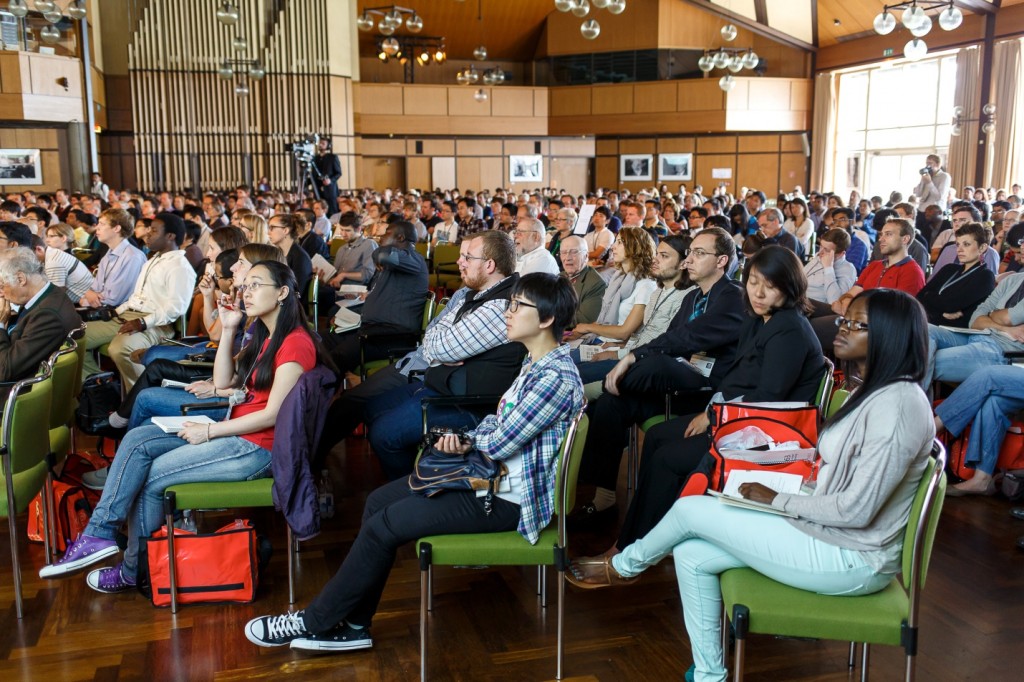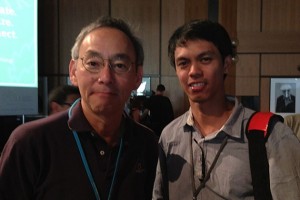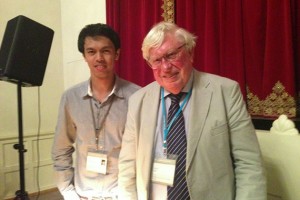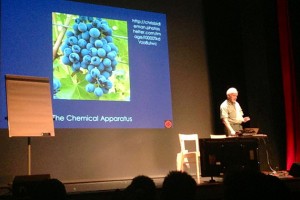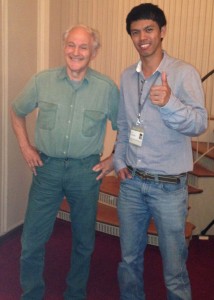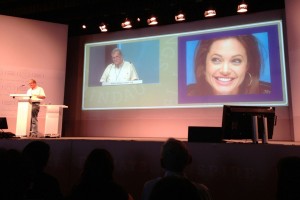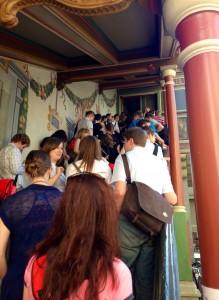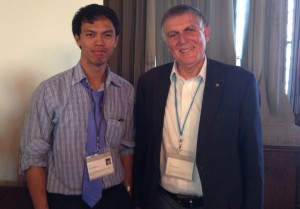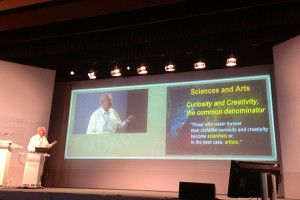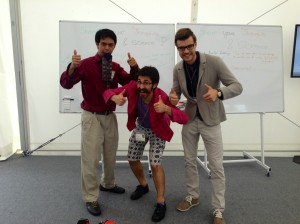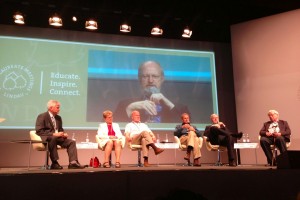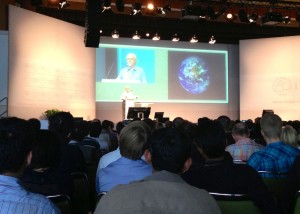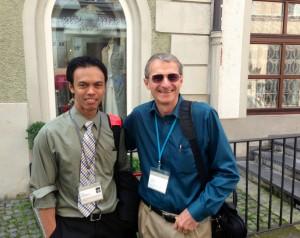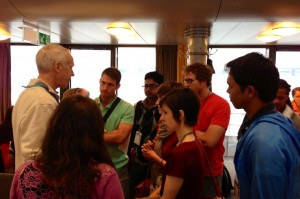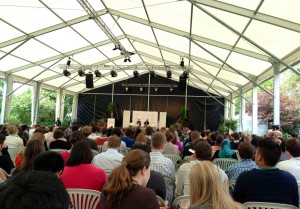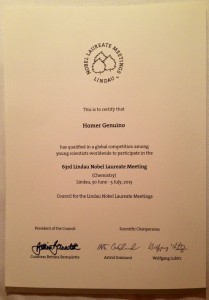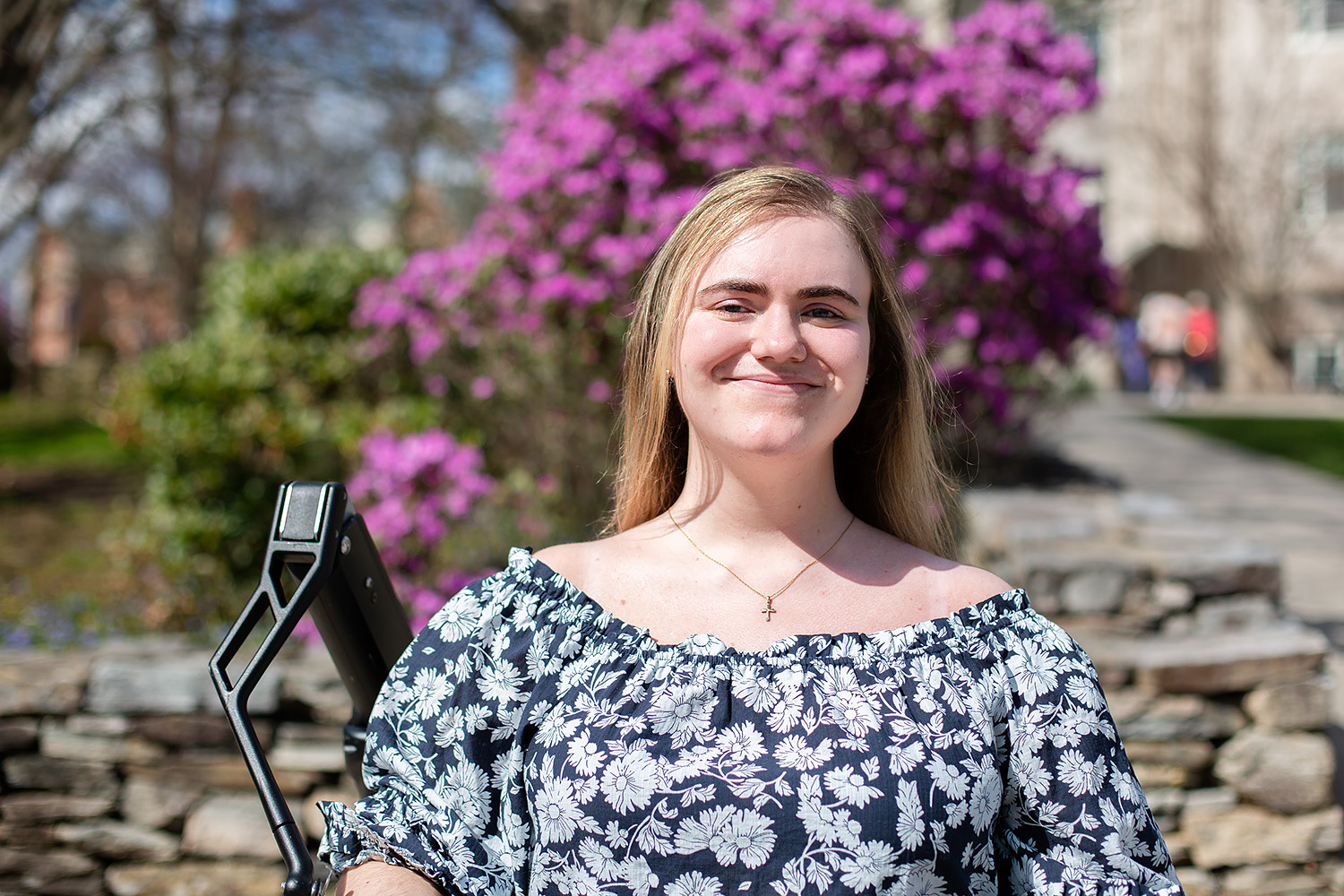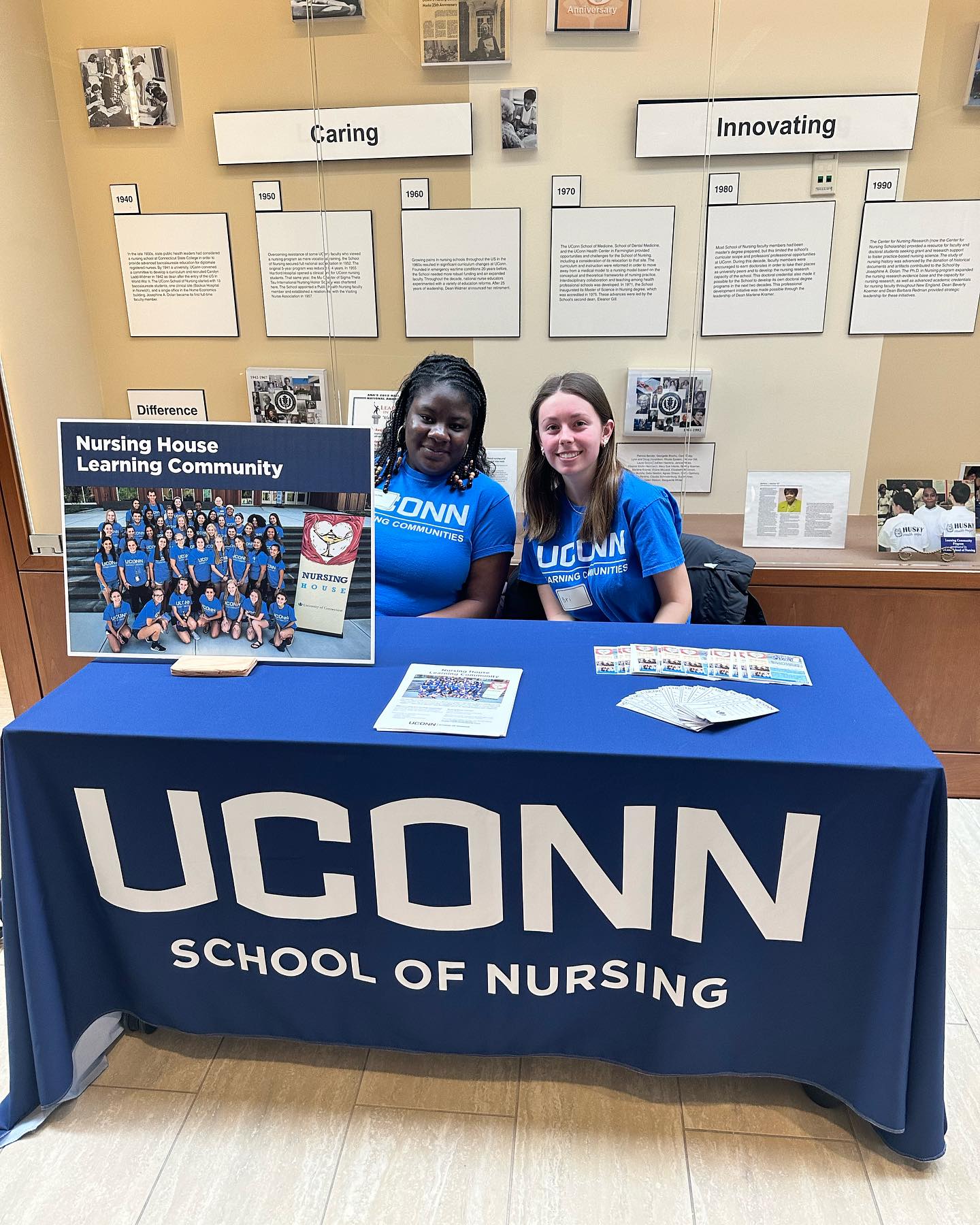Homer Genuino, a UConn Ph.D. student in chemistry advised by Prof. Steven Suib, spent a week this summer in Germany, attending the 63rd Lindau Nobel Laureate Meeting (Chemistry). The annual Lindau meetings were established in 1951 as an opportunity for an intergenerational dialogue between scientists. Genuino was one of about 600 young researchers from around the world selected to listen to, ask questions of, and engage in discussion with 34 Nobel Laureates, and to network with each other. In this blog, he offers a glimpse inside this prestigious event.
People joke that the earth tilted from June 30 to July 5, 2013, as the world’s brain power had concentrated again in one place – a small lovely island in Germany called Lindau – where 34 Nobel Laureates and approximately 600 of the brightest young researchers from 78 different countries congregated for the 63rd Lindau Nobel Laureate Meeting. As one of the participants this year, I was very fortunate to witness this phenomenon, at least figuratively.
The 2013 meeting was dedicated to the Nobel Prize discipline of Chemistry, the subject closest to my heart. Three main themes emerged: (1) Green Chemistry, (2) Chemical Energy Storage and Conversion, and (3) Biochemical Processes and Structures. I have always believed that learning Chemistry is the key to opening doors for work in multiple areas of scientific research. With no regrets, science has been the right choice for me.
My mom, a grade school teacher in the Philippines, checked on me by phone the night before my trip to Germany and asked, “Homer, what actually are you doing in Europe this time?” She is not a fan of me traveling again, as I was just in The Netherlands last April for a conference where I presented a poster and a talk about my research, and lost some pounds. She was my science teacher in elementary school, and so I answered, “Mom, do you still remember the day when you taught us in class that Pluto is the ninth planet from the sun? Tomorrow, I am going somewhere to confirm if it’s really true or not!” Of course, she knows that its status as a planet in the solar system is not true anymore, and so she just laughed. She is aware that I am going abroad again for the of love science. My dad, an artist by profession, is a different case. He really doesn’t understand what I do in the laboratory as a Ph.D. chemistry student in the first place. Nevertheless, he is very happy for what I have achieved and is always supportive, especially now that I am about to graduate.
I asked myself, what are the chances of a young researcher like me bumping into so many Nobel Laureates in his/her field under one roof in a lifetime? It is therefore an absolute privilege to be selected to participate in this wonderful event. Special thanks to the organizers and supporters of the Lindau Foundation for launching the Open Application this year. Some travel grant funds and a participation fellowship (c/o AKB Stiftung) were awarded to me without asking anything in return.
The program was in a class of its own – packed with scientific lectures by the Nobel Laureates on topics of their choice, panel sessions, young researcher discussions, master classes, science breakfasts, and a lot of social events – not to mention fancy meals, concerts, a boat tour, and the presence of media everywhere. This meeting provided me the best opportunity to learn in an informal, relaxed atmosphere, and to establish ties and future collaborations among fellow scientists all over the world.
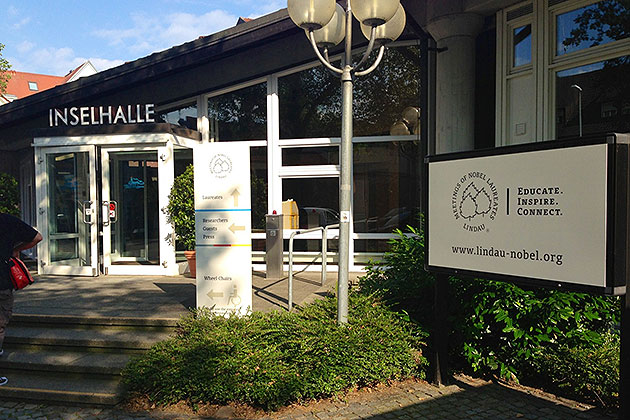
This meeting provoked me to think about many ideas in science and society on a broader scale. Personally, it made me reflect again on my motivations in science: the inexplicable but satisfying feeling when I discover something new and significant, or prove that my hypotheses are correct; the rewards I gain from understanding how and why things work; the lessons I learn from failed experiments; the boost of confidence whenever I effectively share my ideas and knowledge with others and when I influence and inspire young minds; the support of the people and the community with shared interests and willingness to work together to further a common scientific goal; and the fact that science, indeed, can make our life better – all motivate me.
The blockbuster question during the meeting was not “What’s your name?” but “Where are you from?” Putting the institution’s name on the ID instead of the country of origin was not a surprise. The organizers obviously wanted us to focus on networking more than on one’s nationality, and what better way to do that than to introduce ourselves first by our affiliations. This proved to be very effective. I was able to know the personal scientific journeys of most of the participants, and I cannot be more proud of my Department and the University, which supported me throughout my scientific career.
Day 1. At the center of Lindau Island with cobblestone streets with other young researchers. Behind us is the Altes Rathaus, the old town hall of Lindau.
Day 1. The opening ceremony. Entrance of the 34 Nobel Laureates.
Day 2. Young researchers during one of the seven lectures for the day.
Day 2. With Steven Chu during one of the coffee breaks. He is the 12th U.S. Secretary of the Department of Energy and a co-winner of the Nobel Prize in Physics in 1997 for the development of methods to cool and trap atoms with laser light. He is a vocal advocate for more research into new solutions for energy and climate challenges.
Day 2. One component of the meeting after lectures in Inselhalle was the young researcher discussion with laureates held at different venues. I chose to attend Gerhard Ertl’s discussion and had the chance to ask him questions related to my research. He won the Nobel Prize in Chemistry in 2007 for his studies of chemical processes on solid surfaces, which helped explain modern technologies such as fuel cells and catalytic converters. I have not seen any person at the age of 76 as smart as him. I’m really speechless.
Day 2. Sir Harold Kroto’s workshop on Presentation Skills. He shared the Nobel Prize in Chemistry in 1996 for his work on buckministerfullerene.
Day 3. More lectures – Aaron Ciechanover, winner of the Nobel Prize in Chemistry in 2004. Topic: Drug development in the 21st century – Are we going to cure all diseases?
Day 3. We line up waiting for the master class of Dan Shechtman, winner of the Nobel Prize in Chemistry in 2011 for his discovery of quasicrystals, while meeting more young researchers. Only three master classes for selected students were held during the entire event.
Dan Shechtman is another favorite laureate of mine. Topic: The Power of Transmission Electron Microscopy.
Day 4. Lecture. Richard Ernst, winner of the Nobel Prize in Chemistry in 1991. Topic: Widen your scope by extracurricular activities, example: Sciences and Arts.
Day 4. Me with other young researchers. Network, network, network.
Day 4. Panel discussion on Chemical Energy Conversion and Storage with Ertl, Grubbs, Michel, and Schrock.
Day 5. Lecture. Mario Molina, co-recipient of the Nobel Prize in Chemistry in 1995. Topic: Communicating Climate Change Science.
Day 5. Richard Schrock, co-recipient of the Nobel Prize in Chemistry in 2005, and me in the streets of Lindau.
Day 6. Boat Trip to Mainau Island upon invitation of the State of Baden-Wurttemberg. Young researchers (that’s me on the far right) listening to Brian Kobilka, winner of the Nobel Prize in Chemistry in 2012.
Day 6. Panel discussion at Mainau Island on the topic of Green Chemistry, with Chu, Molina, and Braungart.
Day 6. My certificate of participation.
